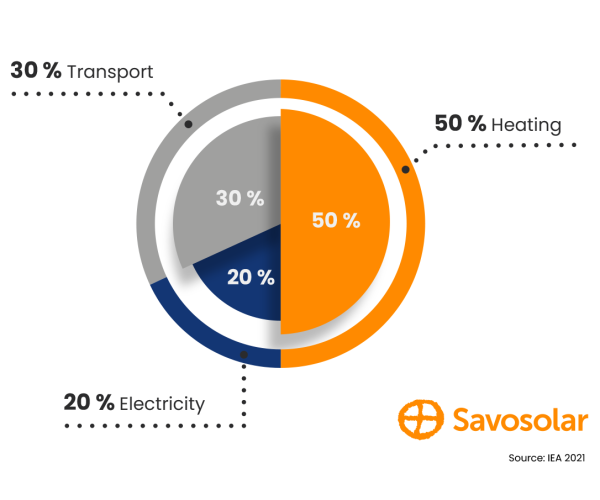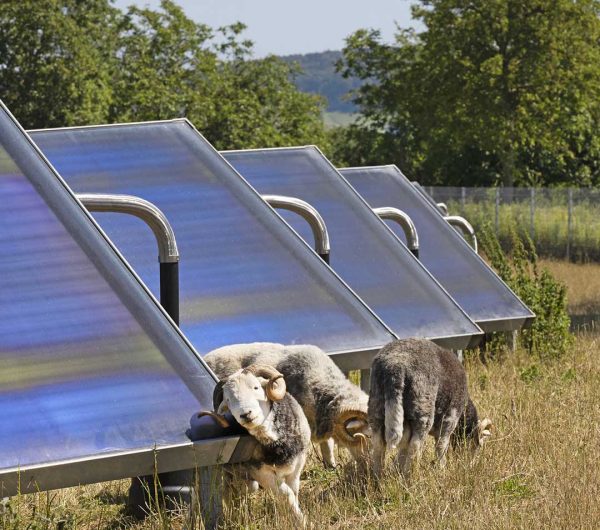Climate change is the greatest challenge of our time, and we have to do everything to slow down global warming. The ever-increasing need for sustainability in global energy production is taking us towards a greater transformation than ever. To limit climate change, we need a transition of the global energy sector from fossil-based to zero-carbon by the second half of our century.
Heating, in general, is the largest energy use worldwide. Providing heating for homes, industry and other purposes accounts for around 50 % of total energy consumption globally, which is significantly more than e.g. electricity (20%) and transport (30%).
The Net Zero Emissions by 2050 scenario means, among other things, that there is a need for a shift from fossil fuels to clean, renewable heat. Savosolar is at the heart of this great change, providing an endless clean heat source, solar heat, at a competitive price and taking us towards a greener future.

According to IEA, the International Energy Agency, the market for solar thermal technology is in steady growth. The world is facing an energy crisis which further emphasizes the importance of solar thermal as the source of reliable, competitive clean heat.

Heating, in general, constitutes the largest use of energy worldwide. Providing heating for homes, industry and other purposes accounts for around 50% of total energy consumption globally, which is significantly more than electricity (20%) and transport (30%), for example.
Solar thermal heating and cooling systems already serve millions of residential, commercial and industrial clients worldwide. The acute need to increase this amount rapidly has been identified, and a wide range of subsidy programmes have been put in place by governments around the world. With the high cost of fossil fuels, solar heat is in many cases economical without any subsidies.